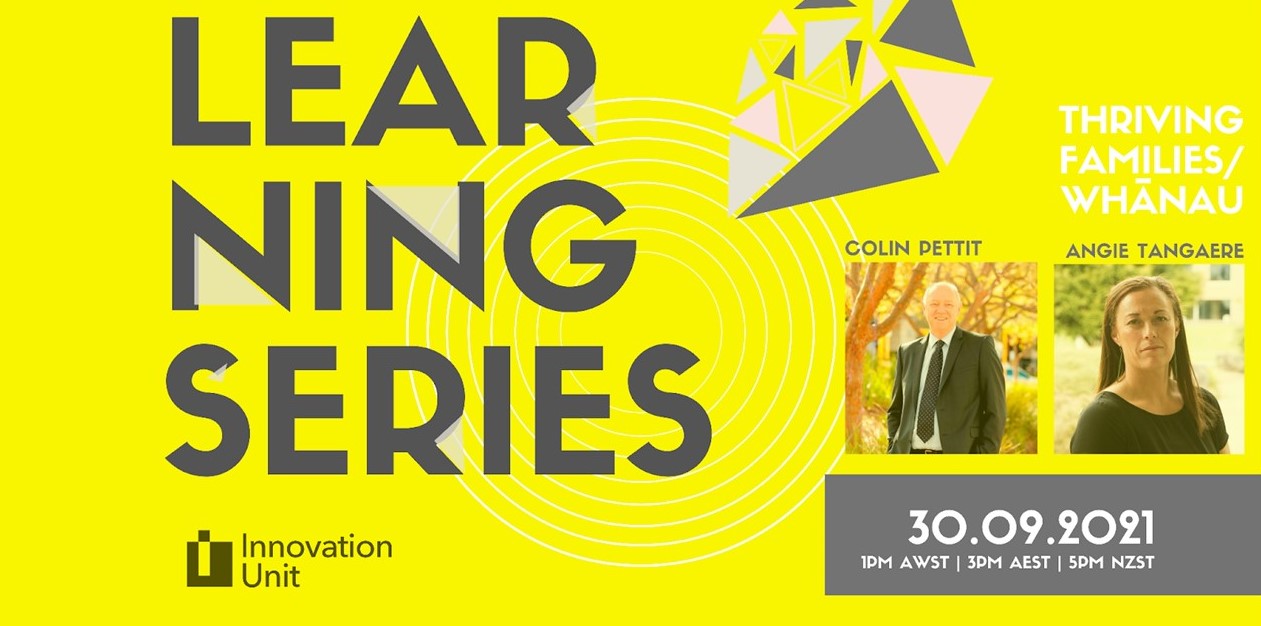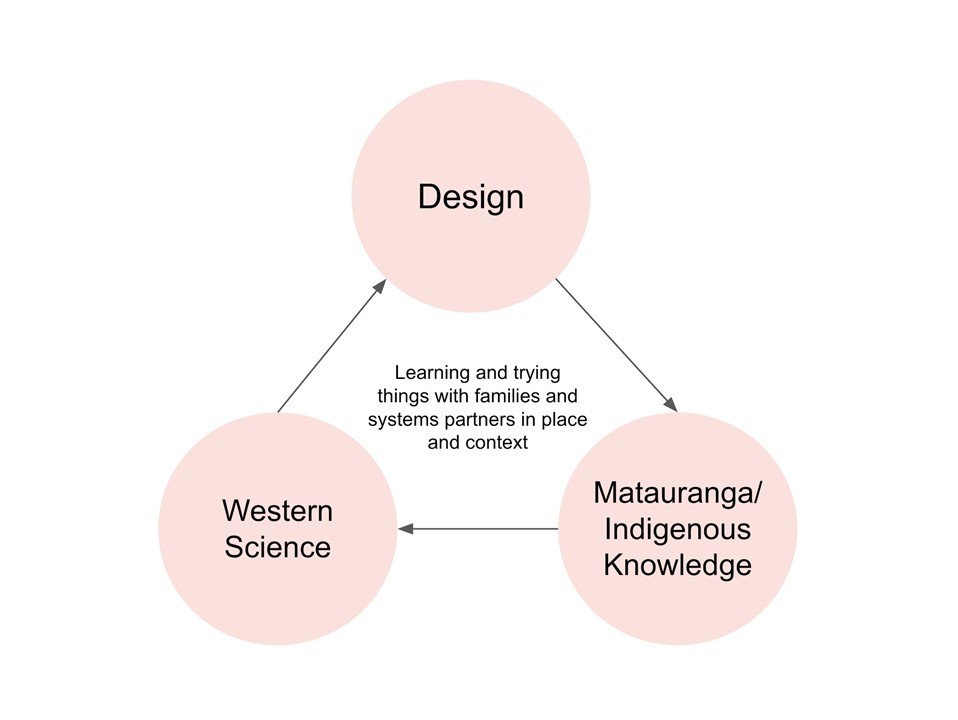
IUANZ Learning Series: Insights on Thriving Families/Whānau
blog | Words Kaci Oliphant | 19 Oct 2021
If we are going to build the families of tomorrow and help them to thrive, and support them in a way that we all want, we need to make sure that we get the fundamentals right. It is crucial that services meet the challenges that families are facing in today’s changing climate.
The load on families has never been greater. In Australia, 1-in-7 families are single parent families, 1.5 million families are struggling with unemployment, and First Nations children are grossly overrepresented in our child protection system, with 1-in-6 Aboriginal children receiving some intervention from child protection. In Aotearoa (New Zealand), while the general well-being of most whānau is good, 1-in-3 women have experienced family violence in their lifetime and about 1-in-4 children have had a child protection report made about them. As the backbone of our society, it is crucial that services meet the challenges that families are facing in today’s changing climate.
On 30 September 2021, Innovation Unit ANZ hosted the second event of our three-part Social Innovation Learning Series, this time focused on thriving families and whānau. We invited our local community of practice across Australia and New Zealand to have a conversation and open their minds to new perspectives on this potential challenge and what the future may hold. We invited two keynote speakers, Angie Tangaere and Colin Pettit, each bringing their own wealth of knowledge and expertise to the topic. Effortlessly engaging and inspiring in their passion, Angie and Colin provided us with two distinct interpretations of the topic, drawing from their unique individual contexts and experiences.
“[This event] really flipped a switch for me”
Participant
KEY THEMES:
Centering Indigenous Knowledge
In Western cultures, design typically reflects the needs of individuals. Whereas in non-Western cultures, families are considered the primary building block of traditional community units. In bringing together Indigenous ways of knowing, doing, and being, with the best practices in the sector, we can create the change we wish to see and act as agents ourselves.
When centering Indigenous knowledge, we must also establish genuine relationships in a culturally appropriate way, supporting trust and reciprocal respect through positive connections (whanaungatanga).

Centering Indigenous knowledge challenges the existing system conditions that perpetuate inequity. For example, the post-colonial ideology that is so deeply ingrained in our systems and current design practices serves to exclude and exploit Indigenous peoples, instead of allowing their knowledge and traditional practices to guide the work and ensure its success and viability.
“Social innovation in Aotearoa must be contextualised for our families so they can see themselves in these spaces, and grow, learn and lead inside these spaces”
Angie Tangaere
Community Engagement and Lived Experience
If we are going to build the families of tomorrow and help them to thrive, and support them in a way that we all want, we need to make sure that we get the fundamentals right.
“Our best solutions are found local”
Colin Pettit
Drawing upon lived experience when designing and co-creating new ways of doing things and responding to the needs of family and whānau. It is incredibly important to hold the voices of those with lived experience for the totality of the design process, not just as an insight or method of gathering qualitative data.
Angie refers to this as whānau-led system innovation – keeping whānau at the centre of innovation and prioritising their voice, expertise, knowledge and leadership to ultimately create the conditions for immediate outcomes for whānau and build their capability for future challenges.
“If we would just trust in their expertise and knowledge and resource our families to do this work we would be looking at the future that most of us dream of”
Angie Tangaere
Following by Example and Learning from Best Practice
“If we keep doing what we are doing, we are not only going to embed the current inequity, but we are going to increase it”
Angie Tangaere
A key theme for this Learning Series was the spotlight shone upon existing examples of best practice from Western Australia and Aotearoa New Zealand.
As powerful advocates, Angie and Colin both help power holders in their respective sectors to hear the voices of family members and consider them legitimate actors for change. This requires neutral and nurturing local spaces in which families and agency leaders are able to co-create as equal innovation partners. There are many organisations doing this work, demonstrating how whānau-led, family-led, and Indigenous-led processes can function well and deliver the greatest impact.
“These are models that we can use now, to build the families of tomorrow”
Colin Pettit
We need to celebrate the success of these organisations and programs leading the way:
- The Southern Initiative
- The ORIGINS Project
- Child Development Atlas
- 100 Families
- Auckland City Mission
- Thrive by Five
- Play Matters Collective
THE NEXT EVENT
We want to thank everyone who attended the IU Learning Series event #02, for connecting with us and fully engaging in some insightful and inspiring conversations about thriving families and whānau. If you missed out, do not worry! The IUANZ Social Innovation Learning Series is not over!
Our next online session, which will focus on the topic of thriving systems, will be held in early 2022 (Date TBC). Keep an eye out for the event details, date, and speaker announcements on our social media channels:
#IULearningSeries
Watch the speaker presentations: